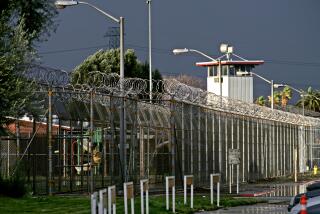Judge Dismisses Suit by Japan’s Ex-Sex Slaves
A federal judge in Washington on Thursday dismissed the only lawsuit filed in the United States against Japan for war crimes involving sex slaves--as many as 200,000 Asian girls and women who were conscripted to serve Japanese soldiers.
U.S. District Judge Henry H. Kennedy Jr. held that the court lacked jurisdiction to grant redress the former sex slaves “seek and surely deserve” because Japan is immune from lawsuits in the U.S. under federal law.
In his 25-page opinion, Kennedy also said that the case involved half-century-old political questions for which the court “is not the appropriate forum.”
Last year, former sex slaves, now in their 70s and 80s, sought redress and reparation in the United States, charging that they were taken from their homes in China, Korea, Taiwan and the Philippines and forced into sexual slavery between 1931 and 1945. Some of the women, euphemistically called “comfort women,” had previously sued in Japan but to no avail.
Kennedy’s decision described the brutal conditions under which the women lived in the so-called “comfort stations,” where some served as many as 30 to 40 soldiers a day.
They were “repeatedly raped, tortured, beaten, mutilated and sometimes murdered,” the judge wrote. “Many of the women endured this brutal treatment for years.”
Still, they have no legal recourse in federal court, he said.
Craig A. Hoover, attorney for the Japanese government, declined comment, referring to an Aug. 1 statement from the Japanese Embassy that said actions of the Japanese military during World War II caused “tremendous suffering” to the people of many countries, including the former “comfort women,” “for which the government of Japan has expressed its feelings of deep remorse and apology.”
Century City attorney Barry A. Fisher, who represents the former sex slaves, said he will appeal the ruling.
“This case is now delayed in final resolution, but we are no less resolved to fight for the rights [of the women] and the atrocities they suffered,” Fisher said.
Inbo Shim, executive director of the Korean Resource Center, a key support group for the former sex slaves in Los Angeles, said: “We are shocked and disappointed. They [former sex slaves] saw the court as their last hope.”
Edward Chang, a professor of ethnic studies at UC Riverside who has been following the case closely, denounced the ruling.
“This case involves crimes against humanity, not political discussions,” Chang said. “At a time when Americans are horrified by the terrorist attacks that have killed more than 6,000 people, we should be equally upset about the more than 200,000 victims of the state-sponsored terrorism by Japan” who are yet to get their day in court.
More to Read
Sign up for Essential California
The most important California stories and recommendations in your inbox every morning.
You may occasionally receive promotional content from the Los Angeles Times.










